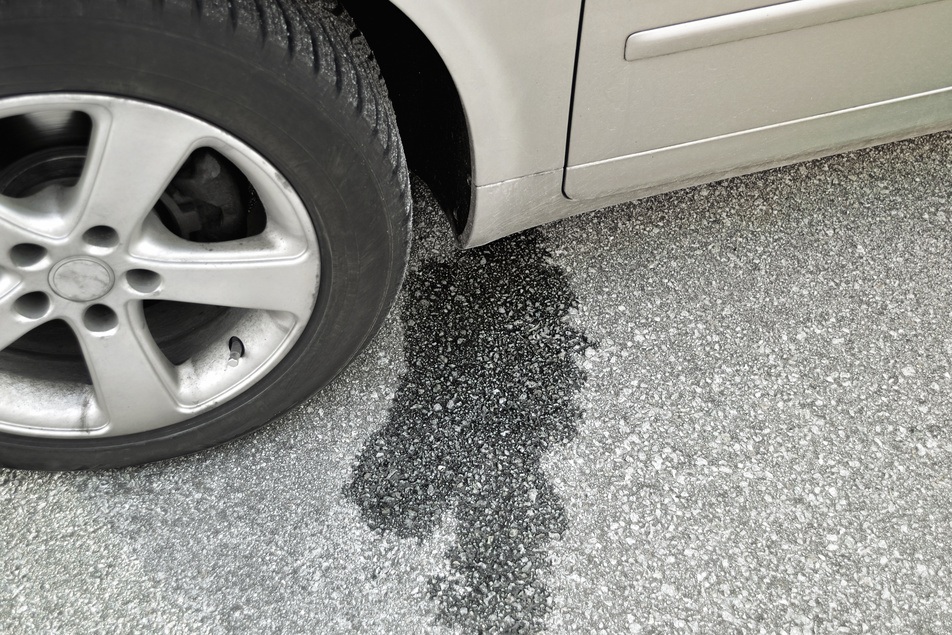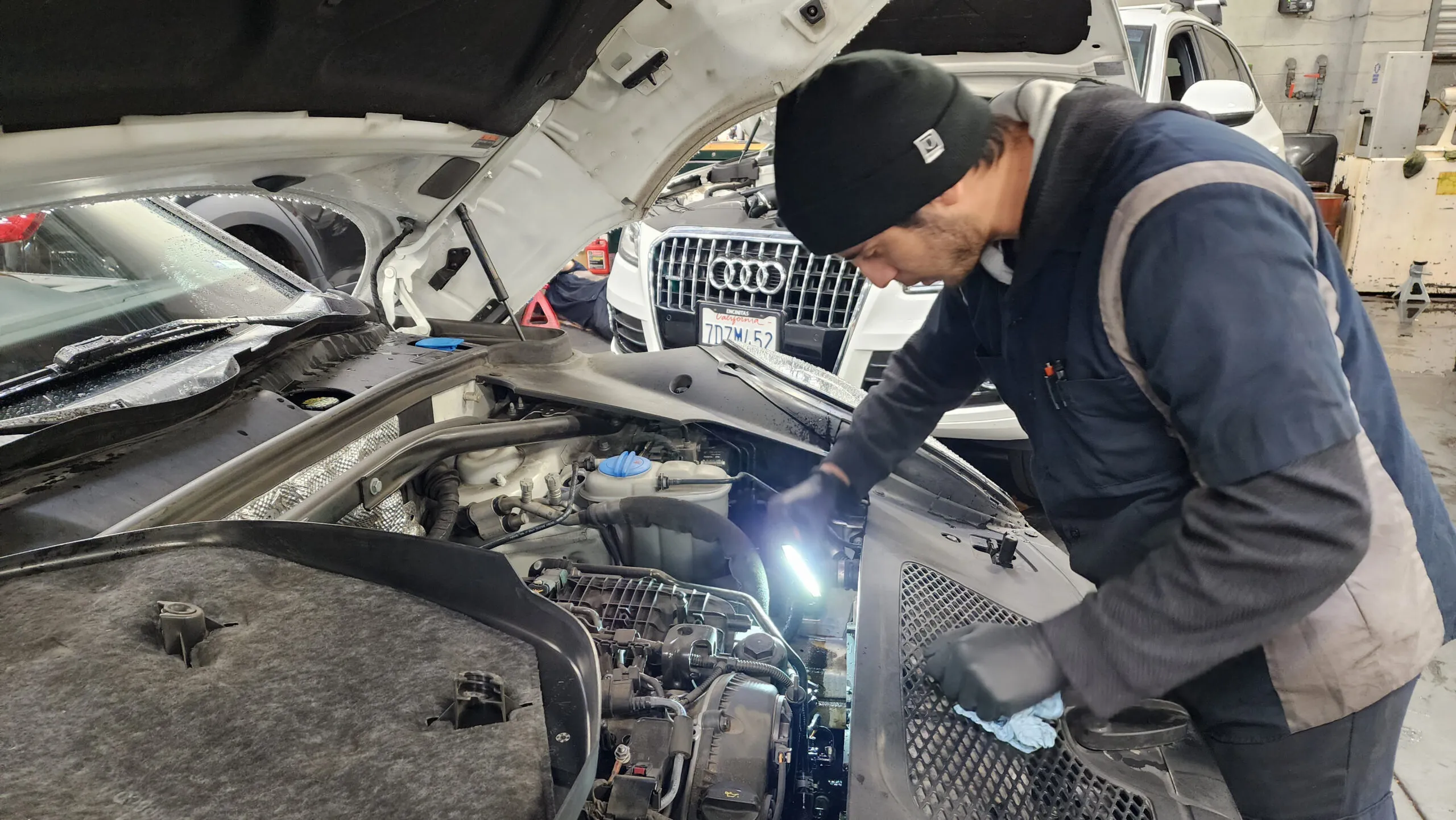Spotting unexpected puddles beneath your car can be alarming, but addressing the issue promptly can help you avoid significant damage.
This detailed guide will help you identify seven common fluids that may leak from your vehicle and provide practical advice on handling them.
Recognizing what’s leaking could make the difference between a minor repair and an expensive fix.
1. Engine Oil
If you notice brown or black spots under your car, this could indicate an engine oil leak.
Often referred to as the lifeblood of your vehicle, engine oil serves to lubricate the engine’s moving parts, reduce friction, minimize wear, regulate temperature, and prevent harmful deposits from forming.
Leaks commonly occur when seals and gaskets wear out or when the oil pan is damaged.
A significant drop in oil levels can result in inadequate lubrication, causing engine components to rub together, overheat, and potentially fail.
Addressing engine oil leaks promptly is essential to avoid these issues. Regular oil changes, as recommended by your vehicle’s manufacturer, are crucial for maintaining oil efficiency and engine health.
2. Transmission Fluid
Pink or red fluid with a slightly sweet smell suggests a transmission fluid leak.
Transmission fluid is essential for your car’s functionality, as it cools and lubricates the transmission’s components, facilitates smooth gear shifts, and powers your vehicle’s movement.
Leaks may result from worn seals, damaged lines, or a punctured transmission pan. Left unaddressed, this can lead to delayed or rough gear shifts, overheating, or even complete transmission failure.
Regular transmission fluid checks and changes can extend the life of your transmission. Identifying and addressing a leak early can help you avoid escalating problems.

3. Brake Fluid
Brake fluid leaks are serious safety concerns that demand immediate attention. This vital liquid, typically clear or slightly yellowish, is a key component of your braking system.
A puddle beneath your car could indicate issues like a damaged brake line, a faulty brake caliper, or a failing master cylinder.
In addition to visible leaks, symptoms such as dashboard warning lights, a spongy brake pedal, or grinding noises during braking may point to brake fluid problems.
Ensuring these issues are addressed promptly is critical for your safety on the road.
4. Power Steering Fluid
A reddish or brown liquid under your car might be power steering fluid. This fluid enables smooth and controlled steering, so a leak could significantly affect your ability to maneuver your vehicle.
Common causes of leaks include a malfunctioning power steering pump, a worn steering rack, or damaged power steering hoses.
If you suspect a leak, have a licensed mechanic inspect your vehicle as soon as possible to maintain safe and reliable steering.
5. Coolant
Coolant, also known as antifreeze, is usually green, yellow, or pink. It plays a vital role in regulating your engine’s temperature. A visible puddle of coolant under your car may point to a leak in the radiator, hoses, or water pump.
Ignoring a coolant leak can lead to engine overheating, which can cause extensive damage. Taking immediate action to repair any leaks will help preserve your engine’s functionality and prevent costly repairs.
6. Windscreen Washer Fluid
A blue liquid under your vehicle could be windshield washer fluid. While not critical to your car’s operation, a leak in this system can be inconvenient, especially in conditions that require clear visibility.
Common culprits include a cracked reservoir, a malfunctioning pump, or a damaged hose. Addressing these issues ensures you maintain clear visibility and avoid unnecessary frustration.
7. Water
Occasionally, you may spot a clear, odourless liquid under your car. This is usually water from your air conditioning system and is typically harmless.
As your AC operates, it condenses water from the air, which then drips harmlessly from the vehicle.
Understanding the various fluids that might leak from your car helps maintain its health and ensures your safety on the road.
If you’re ever uncertain about a leak, consulting a professional mechanic is always the best course of action.

